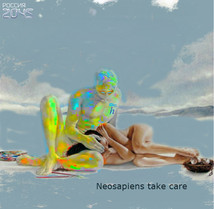/ Фото конкурс
/ experts
- Russian futurologist writer, journalist
 Maxim
Maxim
Kalashnikov"This is something that nobody in the world could pass up. Creation of super- and posthuman, I believe, is a gaining of new strength while saving from degeneration and extinction, . This could potentially make Russia the world leader…’
- Researcher, fiction and alternate history theorist. Is a literary critic and political essayist, sociologist, socionics specialist and military historian
 Sergey
Sergey
Pereslegin"Project 2045 also requires enormous engineering support. And I would claim that both for Russia and for the entire world, the only possibility of overcoming the phase barrier is not to solve biological tasks, not biotechnology, but to solve the task for maintaining engineering for the critical period of 20 years".
- Head of the Space Technology and Telecommunications Cluster at the Skolkovo
 Sergey
Sergey
Jukov"I am absolutely convinced that the movement “2045’ happened exactly at the right time and the right place as I believe in the great future for Russia, in her success after temporary difficulties".
- Doctor of philosophy, professor
 Sergei V.
Sergei V.
KrichevskiyOne temporary solution, in my opinion, is to create a “cosmic person”, and start doing so on Earth, within the “future person” project, as part of the “Russia 2045” Initiative.
- Ph.D. in Physical and Mathematical Sciences, Senior Researcher of the V.I.Il`ichev Pacific Oceanological Institute (Russian Academy of Sciences), composer, philosopher
 Viktor Yurievich
Viktor Yurievich
Argonov“I think that before initiating a radical cyborgization of the brain, you have to find the neural correlate of consciousness. Does it have a physical or purely informational nature in the form of neurosignals? Is there a group of neurons that is directly responsible for consciousness? Or perhaps consciousness is produced by still smaller elements within neurons. . . .”
- Ph.D. in Medicine, Head of the Cells and Tissues Growth Laboratory of Theoretical and Experimental Biophysics (Russian Academy of Sciences)
 Professor Boris K.
Professor Boris K.
GAVRILYUK“For skin on a cyborg, you simply need to create a nutrition system. And basically . . . we are not really complex in design! There are only a few systems: the circulatory system carries oxygen and nutrients; the excretory system extirpates the waste. The rest is end-effectors. To begin we can create a very simple living organism—then, later, more complex systems. . . .”
- Ph.D. in Technical Sciences
 Professor Aleksandr A.
Professor Aleksandr A.
BOLONKIN‘An artificial mechanical body will have great power and withstand extreme environmental conditions: high temperature, pressure, radiation, space...’
- Correspondent member of RAS, professor of the Moscow State University, head of the laboratory “Psychology of communications and psychosemantics” (MSU)
 Viktor F.
Viktor F.
Petrenko"I think that as a working hypothesis, it is possible that forms of contacts with highly advanced civilizations are possible as a result of this profound meditation..."
- Researcher, science debater, futurist, transhumanist, and author
 Anders
Anders
Sandberg"... I certainly think that practical benefits of being able to live for ever, if I transmit myself digitally, I will be able to run on bodies which are not biological or enhanced biological and be able to backup copies in case, if something goes wrong, would be enormous. So, I think, that in the future I am hoping to be software..."
- Ph.D. in Physical and Mathematical Sciences, Senior Researcher of the Heat-Resistant Thermoplastics Laboratory at ISPM (Russian Academy of Sciences), creator of nanosensor neurologic ‘Electronic nose’ system
 Mikhail Y.
Mikhail Y.
YABLOKOV‘When creating an artificial human, we need to add an emotional trend to the predominant robotics one. It’s an all-inclusive idea, and it’s in the air...’
- Ph.D. in Biology, Inventor of the "Bioartificial liver" device
 Professor Vyacheslav Y.
Professor Vyacheslav Y.
RYABININ - Ph.D. in Chemistry, Head of the Chemical Enzymology Department at the Moscow State University, corresponding member of the Russian Academy of Sciences, Director of the Institute of Biochemical Physics (Russian Academy of Sciences)
 Professor Sergey V.
Professor Sergey V.
VARFOLOMEEV‘An electronic version of the brain is needed. The physical brain, in my opinion, can not be a subject of study, since it is very subtle. But an electronic analog having all the receptor equipment and the same story, incentives, motivation - it might be very interesting...’
- President of the Center for Cellular and Biomedical Technologies, First Moscow Medical University and expert on the conscious management of health, biotherapy and the prevention of aging
 Dmitry A.
Dmitry A.
SHAMENKOV‘The body gradually becomes artificial; new tissues replace existing ones, and new media, somehow extending the limits of our body, are being invented. Of course, man and technology are being knitted together. Step by step, we are moving towards the formation of a cybernetic organism...’






 LinkedIn
LinkedIn
 LiveJournal
LiveJournal
 Google
Google
 Twitter
Twitter
 Facebook
Facebook
 Я.ру
Я.ру
 ВКонтакте
ВКонтакте
 Mail.ru
Mail.ru